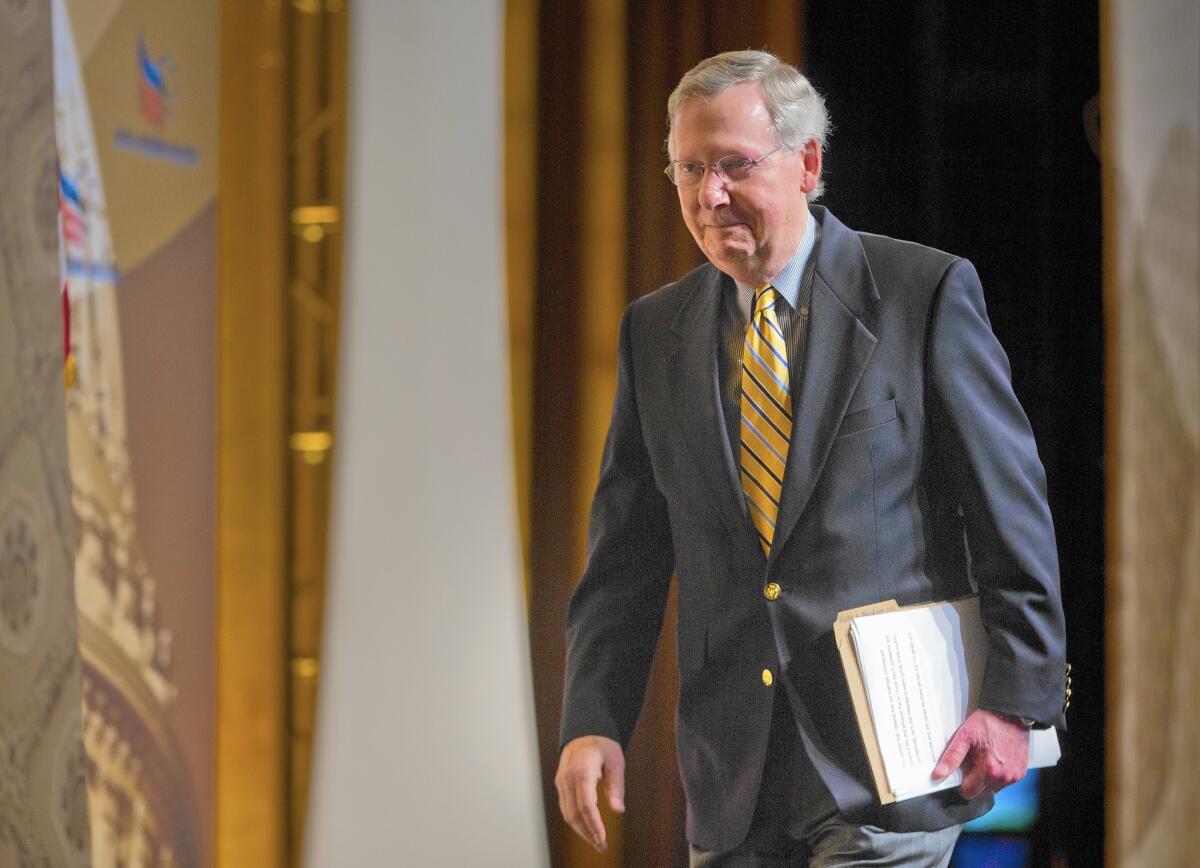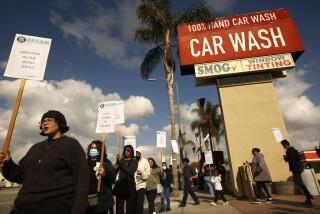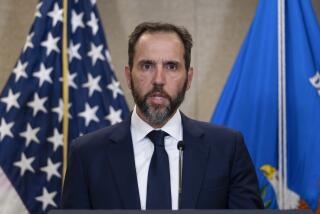McConnell’s coronavirus business liability pledge sparks lobbying frenzy

WASHINGTON — Republicans say they won’t support a new coronavirus relief bill unless it protects business owners from lawsuits related to COVID-19 exposure, sparking a lobbying frenzy from business groups hoping to get their industry or priority into the bill.
Senate Majority Leader Mitch McConnell (R-Ky.) warned that not protecting business owners from lawsuits related to COVID-19 would “dramatically slow” the economic recovery, calling it the GOP’s “red line” in future negotiations with Democrats.
But a week after making the declaration, Republicans don’t yet have a plan. All McConnell would say is that the proposal would be “narrowly crafted liability protection to target healthcare workers and others who have been on the front line here with something brand new that people were unclear of how to deal with.”
Industry groups representing doctors, manufacturers and business owners are rushing to fill the void. Generally, they’re seeking a “higher bar” for allowing employees, customers or patients to sue a business owner if they are exposed to or contract COVID-19 while at work. They say they don’t want blanket immunity from lawsuits — a chief criticism from Democrats.
If a business owner is following the instructions of health officials, he or she shouldn’t have to worry about being sued, said Neil Bradley, executive vice president and chief policy officer at the U.S. Chamber of Commerce.
“If you’re trying to do the right thing, if you’re following the instructions of officials, then you shouldn’t be kind of second-guessed after the fact,” he said.
Eager to get the economy running again, the White House is supportive of liability protection, White House director of legislative affairs Eric Ueland said on Capitol Hill this week. President Trump has said he wants a payroll tax cut, but Senate Republicans quickly knocked that idea down this week.
Democrats have been dismissive of liability protections, saying that employers don’t need any further protection. They are pushing for more worker protections to ensure they feel safe if they go back to work.
Tort reform has long divided the parties, with Republicans and their business allies pushing for greater protections from what they call frivolous lawsuits. Democrats have typically opposed such measures, favoring allowing consumers and workers to go to court when they think it is necessary.
But with Democrats pushing for another coronavirus relief bill — their top priority is funding for state and local governments — Republicans are hoping to advance litigation protection. McConnell, citing lawsuits that have already been filed, has specifically pointed to healthcare workers as a top priority.
“The liability protections seem to me to be fairly straightforward and typical things we’ve done in the past after we’ve had similar crises, where trial lawyers started lining up to file lawsuits, to at least provide some limited protection for people who are doing things the right way,” said Sen. John Thune (R-S.D.).
Medical groups representing physicians say they need protection from lawsuits because they’re facing new risks, such as being blamed for inaccurate COVID-19 tests. They’re also providing care outside of their regular area of expertise and facing a shortage of equipment, such as ventilators, potentially forcing them to ration care. And doctors treating non-COVID-19 patients are making diagnoses during virtual appointments instead of during in-person visits.
“In these and other scenarios, physicians and other clinicians face the threat of medical liability lawsuits due to circumstances that are beyond their control,” dozens of medical groups, including the American Medical Assn., wrote in a recent letter to Congress. “These lawsuits may come months or even years after the current ordeal, when the public memory of their sacrifices may be forgotten.”
National Assn. of Manufacturers general counsel Linda Kelly said manufacturers have been staying open to keep store shelves stocked while trying to keep up with rapidly shifting guidance from health officials. For that reason, they want to see “targeted and limited” protection from lawsuits.
“We would like to see some level of protection for manufacturers who are doing their best to keep people safe and produce the goods that our country needs to keep going and [get] beyond the state of closure,” she said.
The association wants to ensure that employers can’t be sued over products they are making for the first time — such as factories that changed their lines to produce personal protective equipment — or for collecting temperatures or contact-tracing information from employees.
The top priority of the National Federation of Independent Business, which advocates for small business, is that employees who contract COVID-19 at work go through the workers’ compensation system — not a lawsuit. They’re also advocating that customers not be allowed to sue a business unless they can prove it failed to come up with a reasonable plan to reduce the risk of exposure to the disease.
Republican lawmakers and aides say no decision has been made on what the proposal will look like, although several lawmakers are circulating ideas. They have emphasized the point that employers would still have to follow federal and local guidelines, such as the usage of masks and keeping people six feet apart.
But key questions have emerged around whether employers will have to provide personal protective equipment, and how much. In addition, under current law, employees who don’t show up or quit a job because they feel unsafe would no longer be eligible for unemployment benefits.
Rep. Michael R. Turner (R-Ohio) plans to introduce a bill that would protect employers from a lawsuit from an employee who catches COVID-19 after returning to work as long as the employer is following state and federal laws. It would also provide unemployment protection to employees. If employees feel unsafe in their working conditions, they will be allowed to leave their job and, in order to be eligible for unemployment benefits, their departure will be “through no fault of their own.”
Trial lawyers say there are already enough barriers to filing lawsuits against an employer, and oppose granting new employer protections related to the pandemic.
“If you wanted to write a bill that said reasonable conduct would be protected — because some of the proponents of immunity don’t seem to understand that — that would be something that we would have no problem with,” said Linda Lipsen, chief executive of the American Assn. for Justice, which represents trial lawyers.
In a sign of the intensifying lobbying battle, Lipsen’s group and the U.S. Chamber of Commerce have released polls suggesting that the public agrees with their positions, hoping to sway lawmakers on Capitol Hill.
An American Assn. for Justice poll found that nearly two-thirds of voters oppose legislation giving guaranteed immunity to businesses, with the strongest opposition from Democrats. And a poll released by the U.S. Chamber Institute for Legal Reform found that 84% of respondents agree with preventing lawsuits against businesses that have stayed open, such as grocery stores and pharmacies.
More to Read
Get the L.A. Times Politics newsletter
Deeply reported insights into legislation, politics and policy from Sacramento, Washington and beyond. In your inbox three times per week.
You may occasionally receive promotional content from the Los Angeles Times.











